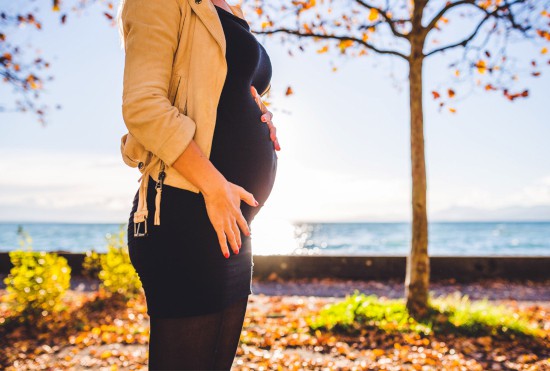
Handling Food Allergies during Pregnancy
Share

Pregnancy is no easy feat, from that moment that you knew that you’re pregnant; the drastic change in your life will definitely begin immediately. From that time on you’ll want to make sure that you’re eating healthy, that you visit your doctor regularly, you stay away from alcohol and other stuff that may harm your baby, and squeezing in the time to have enough exercise and sunlight to provide the best for your child to be.
Food allergy brings pregnancy to a different level. The word “extra” will be very relevant like extra careful, extra precautions, extra stocks of things in your pantry, extra time, etc. This is expected behavior because of the second life that you need to take care of.
Nutrition

Food restrictions are one of the most common safety measures that food allergy people take in order to stay far away from allergy attacks and anaphylaxis. Though it’s encouraged, we all know that it has its drawback, mainly when it comes to getting full nutrition during pregnancy.
We wanted to give you an idea of some of the common food allergies and food substitute that can easily be found in your favorite store or supermarkets but please be reminded that what we’re going to include here are only suggestions and not intended to replace your allergist, dietician, or medical professional’s opinion.
- Nut Allergy – Nuts are full of fatty acids and other nutrients like manganese, magnesium, selenium, calcium, potassium etc. You can substitute nuts with a lot of green veggies to get these nutrients. For fatty acids, you can include salmon, tuna, or vegetable oils to your diet.
- Egg Allergy – Eggs are high in protein and full of choline which helps in our baby’s brain development. There is a lot of egg substitute to get your needed protein but for choline, you can get it from soybeans, turkey, flax seeds, pistachios, sunflower seeds, and cashews so make sure that you have these handy as a snack or included in your meal.
- Sea Food Allergy – These foods are good sources of Omega-3 fatty acids and lean protein that are needed for your baby’s development and a healthy heart. Seafood also provides an ample amount of antioxidants. Luckily you can substitute it with cherries, strawberries, kale, asparagus, and broccoli. Subs to get protein and fatty acids are as mentioned earlier.
- Milk Allergy – Studies show that calcium helps in our baby’s development of strong bones and teeth and that goes to the mom as well. Substitute milk with soy milk, almond milk, rice milk or orange juice for your dose of calcium. Calcium can only be absorbed by our body with the help of vitamin D so include eggs, tuna, and fresh juice or simply by enjoying a morning under the sun.
- Celiac Disease – Complex carbohydrates found in wheat helps moms-to-be from nausea and constipation. It’s also a good source of B vitamins, iron, niacin, and folate that helps in baby’s development. If you have gluten allergy include beans, lentils, edamame to your diet. Popcorn is a good substitute as well and can be enjoyed while bingeing your favorite shows.
There are other food allergies that are not included in our list and there are people who have multiple food allergies. It’s always better to consult a medical professional before you start including these foods in your diet.
Allergy Attacks and Anaphylaxis during Pregnancy
There are moms who reported that their food allergies have improved during their pregnancy stage and some said that it got worst and unfortunately, there are no known studies about it to further conclude it. One thing is for sure: anaphylaxis during pregnancy can definitely happen.
According to an article from Very Well Health on August 2018, out of 23 patients who have anaphylaxis during pregnancy, 6 were triggered by latex, 8 were from penicillin and related antibiotics, 1 unfortunately to a bee sting, and the remaining numbers are from medications.
To prevent this, make sure that your doctor is well aware of your allergies. There are medicines and supplements that have tree nuts or peanuts as their base ingredient and having your doctor on the same page will lessen your exposure to your allergen.
Is Epinephrine Safe to Use during Pregnancy?

Due to this, we asked, is it safe to use EAI (epinephrine auto-injectors) if anaphylaxis occurs during pregnancy or delivery.
Since EpiPen® is one of the most popular EAI brands, we checked their website for any information about its use during pregnancy and here’s what we found out “There are no adequate and well-controlled studies in pregnant women, epinephrine should be used in pregnancy only if the potential benefit justifies the potential risk to the developing infant.”
There was a report included in the Food Allergy Canada article (included in our reference) where anaphylaxis occurred during pregnancy and the patient was given Benadryl and Prednisone under the close supervision of her doctor instead of epinephrine.
Safety should be prioritized if you have a food allergy, more so if you are pregnant. Make sure to adjust your anaphylaxis action plan including the risks it may bring you and your child to be. Be careful of new things that you will ingest or include in your diet and always follow your doctors’ prescription and since we don’t have any concrete studies about the use of epinephrine if anaphylaxis occurs, discuss and clarify this with your specialists.
References:
Very Well Health – https://www.verywellhealth.com/anaphylaxis-during-pregnancy-82662
Drugs.com – https://www.drugs.com/pregnancy/epinephrine-topical.html
EpiPen.ca – https://www.epipen.ca/en/content/can-epipen%C2%AE-be-used-during-pregnancy1
